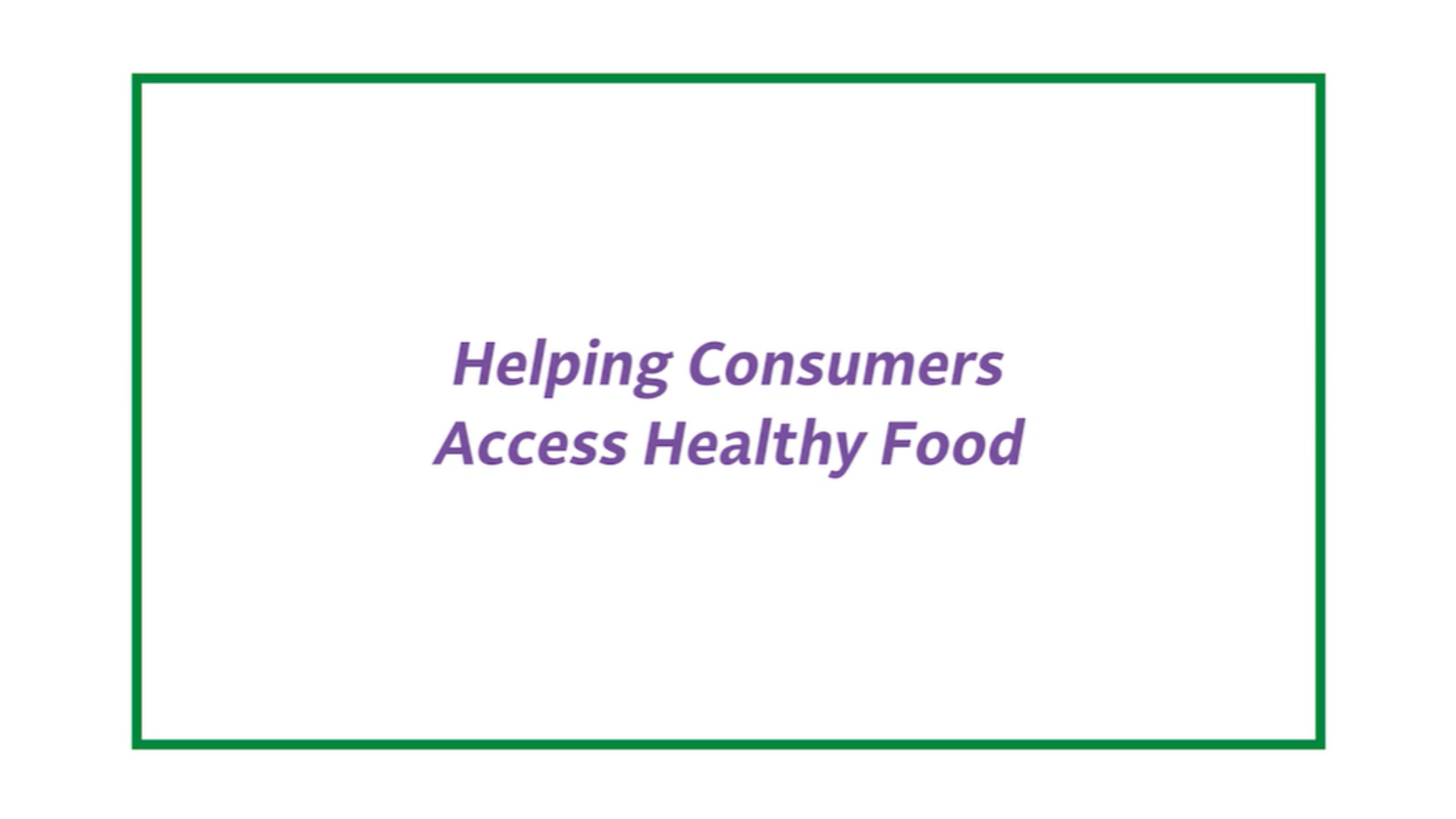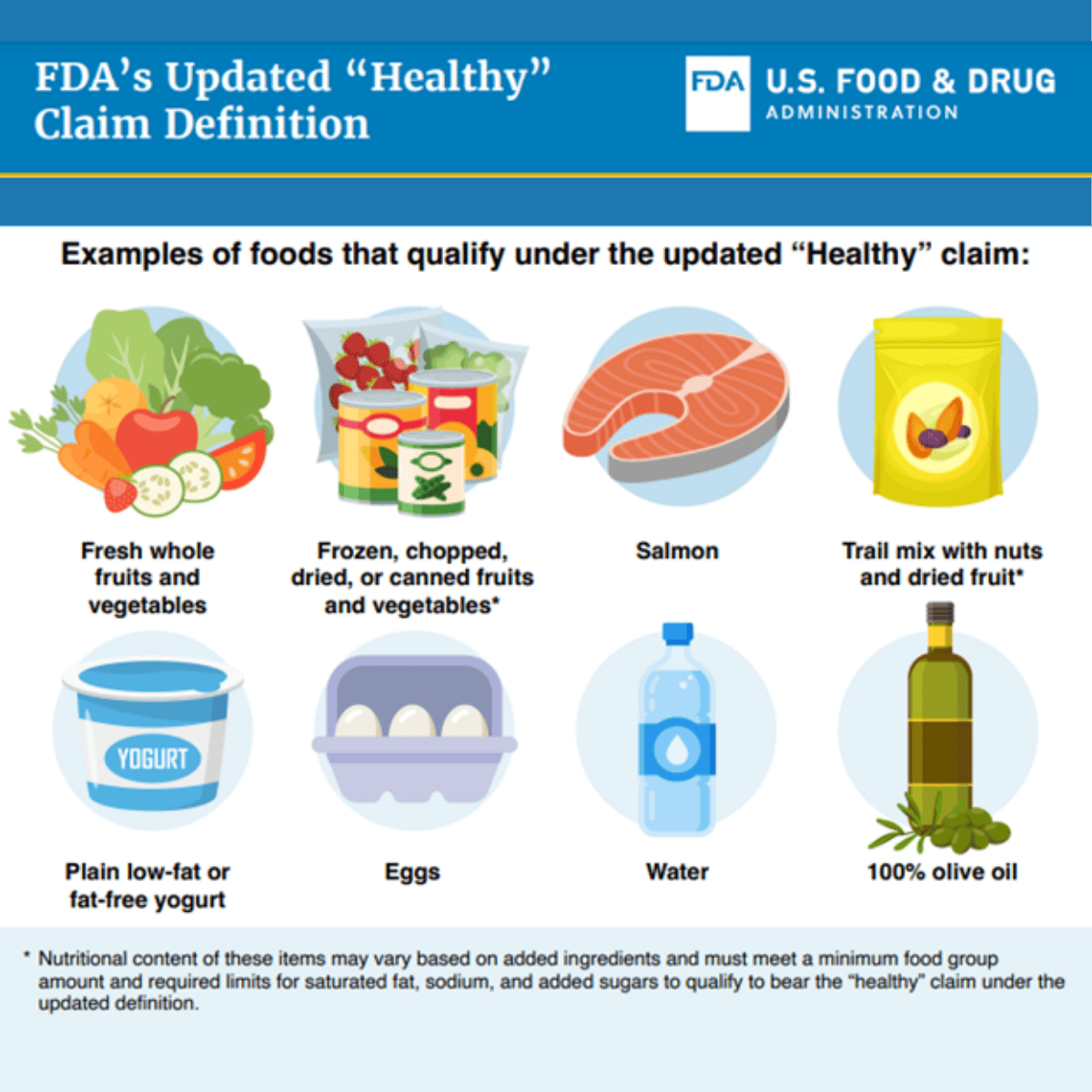By: Krystal Register, MS, RDN, LDN, Senior Director, Health & Well-being, FMI 
The U.S. Department of Health and Human Services (HHS) held the first-ever HHS Food is Medicine Summit on January 31st in Washington, DC to address the importance of food is medicine initiatives with gathered policymakers, advocates, researchers and key stakeholders. The event highlighted why food is medicine is important, what actions are being taken to advance this concept, and how policies are being implemented to benefit communities.
Several federal agencies highlighted their efforts to improve health equity, reduce food insecurity, and reach Americans with resources and nutrition guidance for improved health. Opportunities and challenges were discussed around collaboration, innovation, education, research, advocacy and the need to work together for a stronger, healthier nation.
Insights from Government Leaders
Xavier Becerra, U.S. HHS Secretary, spoke to the importance of nourishment and bringing healthcare resources to schools and local communities to truly promote wellness. Sec. Becerra shared a powerful quote from his mother: “It is much better to prevent than remediate.”
Tom Vilsak, U.S. Secretary of Agriculture, also emphasized nourishment in connection to the USDA nutrition programs. Sec. Vilsak shared his intentions to reduce chronic disease, create culturally sensitive solutions, and to apply an equity focus with more funding and education for programs like WIC and SNAP.
Robert Califf, U.S. Commissioner of FDA, reiterated the agency’s urgent issues: more and better information on food packaging, voluntary sodium reduction efforts, standardizing the definition of “healthy” with an accompanying symbol, front-of-pack labeling and more education. Dr. Califf also spoke about the FDA's structural reorganization and the creation of a Center of Excellence for Nutrition with a specific area for Food as Medicine.
Announcements to Advance Collaboration
Three new public-private partnerships were announced at the meeting, including initiatives with the Rockefeller Foundation, Instacart, and Feeding America. As an important part of the day, HHS unveiled the new Food is Medicine Framing Language and Principles to guide federal agencies and public-private partnerships in their advancement of food is medicine efforts.
During a panel session on Integrating Food is Medicine into Cross-Sector Systems to Advance Health, Dr. Marc Watkins, Chief Medical Officer at Kroger Health, emphasized how grocery stores take the health of their local communities very seriously. Dr. Watkins stated the importance of continued research and advocacy, the need to meet people where they are, and the notion that “it’s going to take all of us” to reduce the incidence of chronic diet-related disease in our country.
The food industry currently embarks on many collaborative food is medicine initiatives, including prescription programs, nutrition incentive programs, medically tailored nutrition, supportive path-to-purchase marketing and personalized nutrition education efforts. The strong presence of FMI members from across the food industry at the summit exemplified the continued and integral role of the industry to improve hunger, nutrition and health.
To see examples of how some of these programs play out across the food industry: Spotlight: Improving Nutrition Security at the Grocery Store


 Industry Topics address your specific area of expertise with resources, reports, events and more.
Industry Topics address your specific area of expertise with resources, reports, events and more.
 Our Research covers consumer behavior and retail operation benchmarks so you can make informed business decisions.
Our Research covers consumer behavior and retail operation benchmarks so you can make informed business decisions.
 Events and Education including online and in-person help you advance your food retail career.
Events and Education including online and in-person help you advance your food retail career.
 Food Safety training, resources and guidance that help you create a company food safety culture.
Food Safety training, resources and guidance that help you create a company food safety culture.
 Government Affairs work — federal and state — on the latest food industry policy, regulatory and legislative issues.
Government Affairs work — federal and state — on the latest food industry policy, regulatory and legislative issues.
 Get Involved. From industry awards to newsletters and committees, these resources help you take advantage of your membership.
Get Involved. From industry awards to newsletters and committees, these resources help you take advantage of your membership.
 Best practices, guidance documents, infographics, signage and more for the food industry on the COVID-19 pandemic.
Best practices, guidance documents, infographics, signage and more for the food industry on the COVID-19 pandemic.
